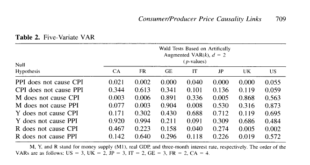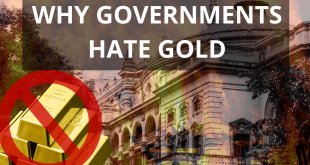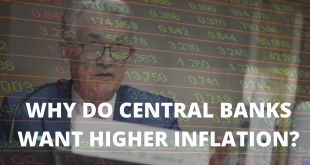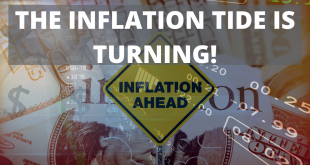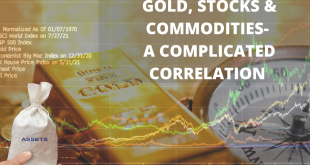Franc is currently sought after as a refuge currency Franc appreciation also reflects inflation differential between Switzerland and other countries The franc continues to be highly valued SNB looks at overall currency situation Individual currency pairs do not play a special role Some verbal intervention there by the SNB but in typical cases for the franc, actions speak louder than words. That said, this could be a precursor before the “invisible hand” steps in. So,...
Read More »SNB Jordan: Strong Swiss Franc limits Swiss inflation
SNBs Jordan Strong CHF limits swiss inflation See no sign swiss wage price cycle Inflation stubbornly above 2% would lead to policy tightening Difficult to say whether global rates have turned, much still depend on economic development CHF has remained stable in real terms Asked about real estate prices, Jordan says monetary policy aims primarily at price stability The SNB is not investing in crypto currencies The USDCHF has moved to new session lows (higher CHF)...
Read More »SNB says successfully tested use of digital currency to settle transactions with top investment banks
The latest trial could see the introduction of central bank digital currency move a step closer in Switzerland. The SNB says that they integrated the digital currencies into payment systems and used them in simulated transactions involving UBS, Credit Suisse, Goldman Sachs, and Citigroup. The test showed it was possible to instantaneously execute payments, ranging from CHF 100,000 to CHF 5 million, elimination counter-party risk. I still think it will be a while...
Read More »Testing The Supply Chain Inflation Hypothesis The Real Money Way
Basic intuition says this is a no-brainer. Producer prices rise, businesses then pass along these higher input costs to their customers in the form of consumer price “inflation” so as to preserve profits. This is the supply chain hypothesis. Statistically, we’d therefore expect the PPI to lead the CPI. And this was expected for much of Economics’ history, taken for granted as one of those self-evident truths (kind of like the Inflation Fairy). After the dreadful...
Read More »Why Governments Hate Gold
Do governments hate gold? The answer: Yes — Governments hate gold because they cannot print it, and it is difficult for them to control. Because they cannot print it or easily control it, gold has little use to them during the never-ending schemes to tax and then redistribute wealth. India is a recent example of a government trying to control gold imports through increased taxation on imports and imposing rules, such as that importers had to re-export 20% of imports...
Read More »Why Do Central Banks Want Higher Inflation?
Why do Central Banks want higher inflation? The debt ceiling debate in U.S. Congress and related political nonsense brings even more to light the exponential growth in US federal government debt. US government debt has doubled in the 10 years since the last major debacle Congress created over raising the debt ceiling back 2011. The debate and Congress’s unwillingness to increase the limit back in August 2011 resulted in declining equity markets. It also resulted in...
Read More »The Inflation Tide is Turning!
In our post on January 28, 2021 “Gold, The Tried-and-True Inflation Hedge for What’s Coming!” we outlined four reasons that we expect higher inflation over the next several years. The brief bullet points are: Money Supplies have risen dramatically Commodity Prices are rising again Reduced Globalization as ‘Made at Home’ policies are proliferating Pent up demand Headlines such as this one last week from Bloomberg “Inflation gauge Hits Highest Since 1991 as Americans...
Read More »The Changing Role of Gold
In our post on August 11 titled End of an ERA: The Bretton Woods System and Gold Standard Exchange, we discussed the significance of then-President Nixon’s action of closing the gold window thereby ending the Bretton Woods Monetary system. Under the Bretton Woods monetary system, central banks could exchange their US dollar reserves for gold. This also ended the gold fixed price of US$35 per ounce. This week we explore the two questions that concluded last week’s...
Read More »A Look Back at Nixon’s Infamous Monetary Policy Decision
Putting the World on a Paper Standard Half a century ago one of the most disastrous monetary policy decisions in US history was committed by Richard Nixon. In a television address, the president declared that the nation would no longer redeem internationally dollars for gold. Since the dollar was the world’s reserve currency, Nixon’s closing of the “Gold Window” put the world on an irredeemable paper monetary standard. The ramifications of the act reverberate to...
Read More »Gold, Stocks & Commodities- A Complicated Correlation
In our July 29 post titled How Gold Stacks Up Against Stocks, Property, Commodities and Big Macs! we showed readers charts of gold as a ratio to other assets and products. We discussed that gold competes with crypto and stocks for the investment dollars. It was clear that gold as a ratio of the S&P 500 Index and of the broader MCSI World Equity Index show that gold is ‘relatively cheap’ compared to these measures. But then we showed that this wasn’t the...
Read More » Swiss Economicblogs.org
Swiss Economicblogs.org




